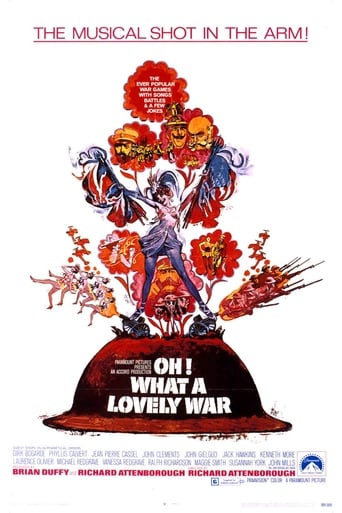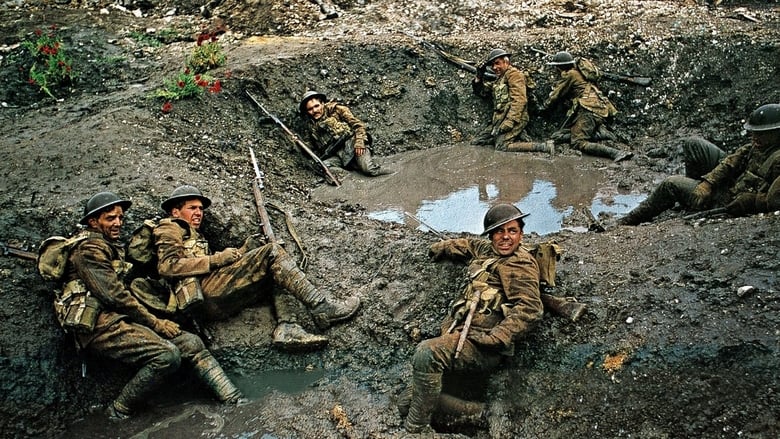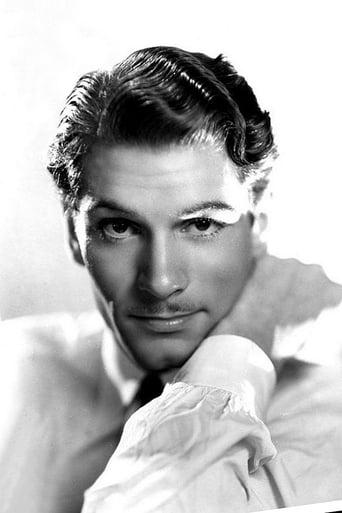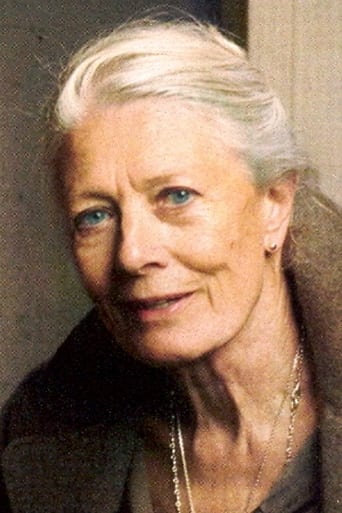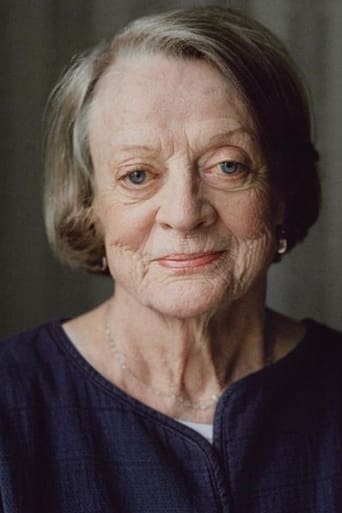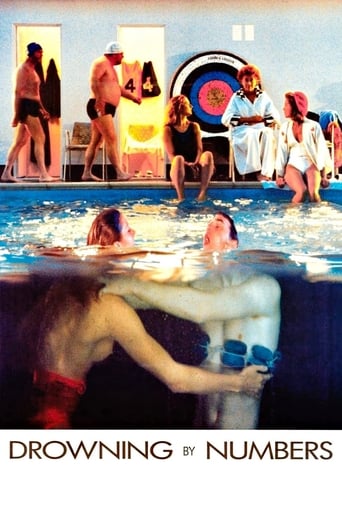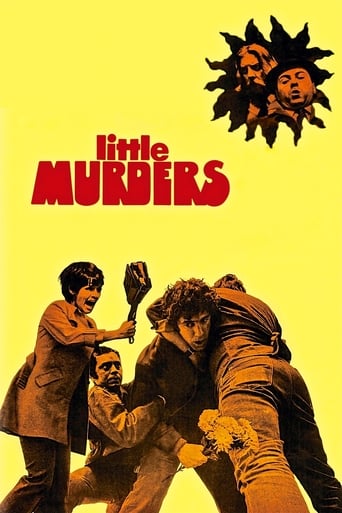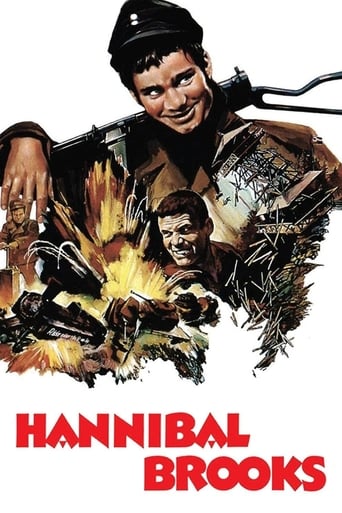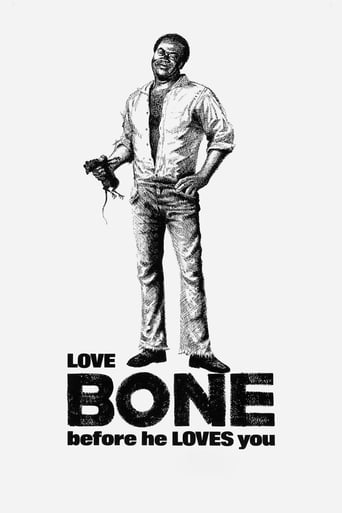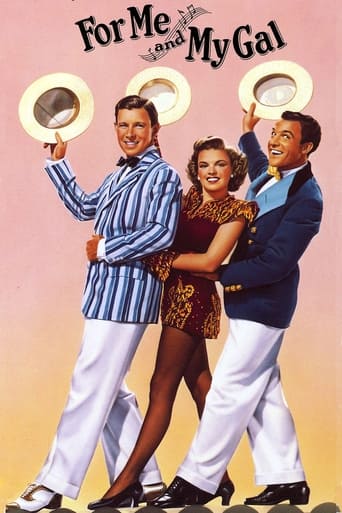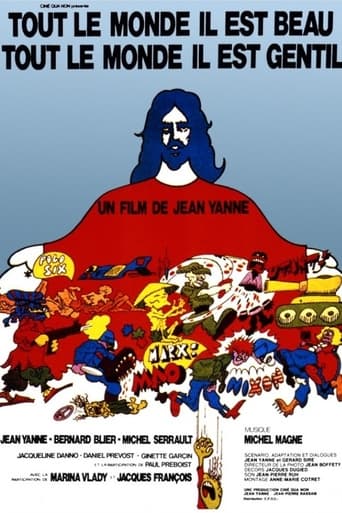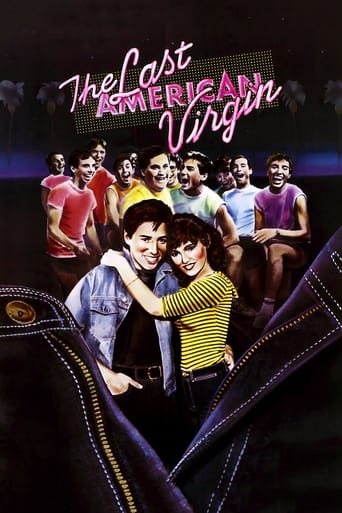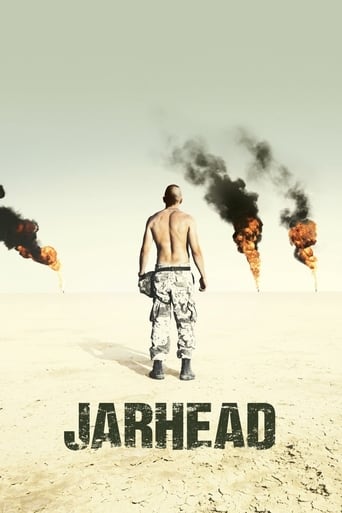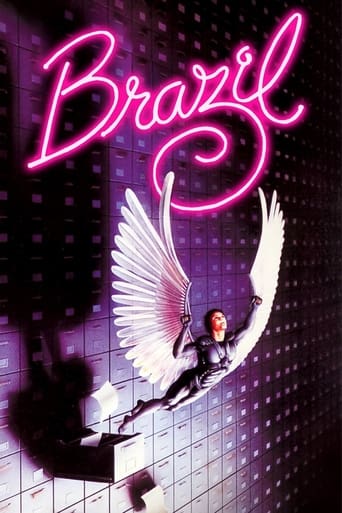Oh! What a Lovely War (1969)
The working-class Smiths change their initially sunny views on World War I after the three boys of the family witness the harsh reality of trench warfare.
Watch Trailer
Cast


Similar titles
Reviews
This allegorical musical based on the British view of World War I found a friendly audience in America which was going through the Vietnam war protests at the time it got to the big screen in 1969. It had run on Broadway for 125 performances in the 1964-65 season.One of the things that director Richard Attenborough did is populate the cast of the major war figures with some of the biggest names in British cinema. That certainly guaranteed a bit of box office for him, but I also think that Attenborough being a very well liked man he was able to get people like Laurence Olivier, Michael Redgrave, John Mills, and Ralph Richardson and many others for probably less than the usual going rate.The musical numbers however were done by a cast of unknown folks for the most part. Songs of the era and the acidly satirical versions of them popular in the trenches at the time are heard. The music is from a variety of sources, most I'm sure had passed into the public domain. As for satirical to give you an example the finale has a male chorus singing a version of Jerome Kern's They Didn't Believe Me. But Herbert Reynolds's lyrics get no credit and when you hear this version you'll know why.The causes of World War I is one of those great historical topics that historians amateur and professional will be writing about for years. My own opinion is that the end of it involved a race between how fast trained American troops could get to the western front to make the difference as Germany was transferring troops from the now abandoned eastern front against the Russians. The eastern front and the various far flung world wide fronts have stories all their own.I believe the same film could be made in Russia, France, Germany, and the Austrian remnant of the Hapsburg empire as they were the major players. The British and French colonial and commonwealth powers and other allies have a different slant on it. The American version is unique because the war had been going on for four years before appreciable American participation started in the spring of 1918.It was a colossal piece of human stupidity that people then could not comprehend after 100 years of relative peace in Europe. Automatic weapons made for the ultimate in defensive war, the trench. From about Antwerp in Belgium, through France to the Swiss border was a line of trenches as the Allies and Central Powers sought to just have that one big push that would make victory. An entire generation of the continent was wiped out, by the war and by the great influenza epidemic that followed as health services were depreciated badly because of the late conflict. Small wonder that a strong peace movement developed in the Twenties and Thirties. And smaller wonder that Germany who lost the attrition essentially was given total blame for the catastrophe and saddled with war reparations that crippled it. It's what made Adolph Hitler.World War I was also an era of magnificent poignant melodies that gained popularity. There's A Long Long Trail a Winding, Roses Of Picardy which had certainly no martial spirit gained eternal popularity and they're done straight. As is It's A Long Long Way to Tipperary whose lyrics have nothing to do with the war, but was enormously popular in the era, naturally among the Irish soldiers.Oh What A Lovely War was a great triumphal directorial debut for Richard Attenborough. For someone with no appreciable musical background he did well directing a musical. And the film absolutely betrays no stage origins, in fact it's almost hard to imagine it on stage. Try not to miss this one.
Richard Attenborough's directorial debut eventually got eclipsed by his other movies, but "Oh! What a Lovely War" is definitely one that everyone should see. The movie focuses on World War I, telling the story through the eyes of several members of a giant family in Brighton. To give you an idea of what kind of movie this is, there are some ugly scenes of the war juxtaposed with musical numbers. It's a sharp - but hilarious - satire every step of the way. No doubt people saw the film as an analogy to the Vietnam War at the time of its release. Not only does the movie do a great job showing the absolute futility of war, but there's a stark contrast between the battlefield and the palaces, where the ruling class remains conveniently detached from the realities of the war.Probably the most effective scenes are the Christmas Truce and the cemetery. The former shows how these soldiers, trained to see each other simply as "the enemy", suddenly saw each other as human beings, and thereby questioned the purpose of the war. The latter shows the result of the war, and how the cemetery has essentially become a monument to mass slaughter. Millions of young men used as cannon fodder, all so that Europe's imperial powers could stay in control of Africa and Asia.A who's who of British cinema dots the entire film. Laurence Olivier, John Gielgud, Michael Redgrave, Corin Redgrave (who died earlier this year), Vanessa Redgrave, Maggie Smith, Ian Holm, Susannah York, Dirk Bogarde, Ralph Richardson and others make appearances. Jane Seymour also makes her debut in an uncredited role.Like I said, this is definitely one that I recommend. I can't stress enough how great it is, just showing how terrible war is, all the while staying humorous. Without a doubt, you HAVE to see it.
What is this film exactly? It certainly isn't history or documentary. If it's a musical, then it's rubbish. No, the word for this stuff is agit-prop.This is a film very much of its time. And the time in question....the 1960s, flower power, war is wrong, give peace a chance, etc etc etc.It unthinkingly subscribes to the discredited 'Lions led by Donkeys' mantra beloved of the Luvvie mindset.All of these opinions have, thank goodness, fared poorly with the passing of time, hence the very dated feeling engendered by this film. Nowadays the war-guilt of the Kaiser's Germany is much clearer, and those who have thought with clarity on the subject are perfectly aware that we didn't need a Neville Chamberlain in 1914.So, watch this as an interesting period piece, very revealing of the attitude of its makers. Otherwise, give it a pass.
By Hollywood rules, it should never have been made; no studs or ingénues as leading characters, no love interest,or heroic exploits,length more than two hours.. the humor is ironic, and makes you think more than laugh... But this is a great film. The original stage production had made a deep impression on John Mills, and it seems as though he, Olivier, Attenborough, Gilegud, Richardson and probably most of the rest of the star-studded cast thought they simply had to make this film, and it shows...(Yes, actual personal commitment, what a concept..)The subject is how the British nation were sold a war, and how the British military command refused to realize it when it became disastrous, and continued to waste thousands of lives to no purpose. Not your typical musical...But despite the theatrical setting on a Brighton Pier for some of the scenes, there's real history there. John Mills, as General Haig, really uses Haig's words, from his diaries, in all their comforting, delusional splendor. I only wish the film could have been re-released prior to Operation Iraqi Freedom, ( or whatever they're calling it now).

